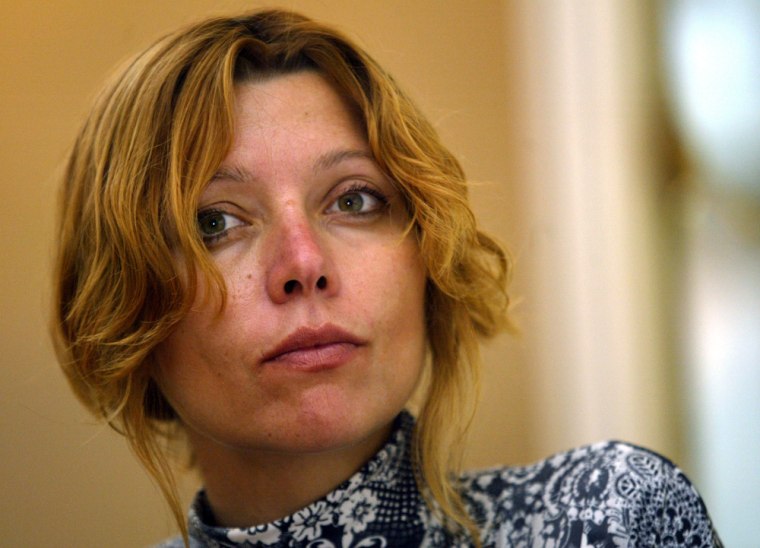Leading Turkish novelist Elif Shafak goes on trial next week in a case she views as a milestone for freedom of speech in Turkey because for the first time the words of fictional characters are being judged.
Shafak, a cosmopolitan feminist who writes in English and Turkish, is accused of “insulting Turkishness” in her new novel “The Bastard of Istanbul,” under controversial Article 301 of Turkey’s revised penal code.
Several journalists and writers, including best-selling Orhan Pamuk, have been tried under the article, in cases closely followed by the European Union, which says Turkey must permit more freedom of expression before it can join the bloc.
“But to date (it) has never been used against fictional characters. In that sense this is a new step and it’s quite surprising and upsetting because if they keep doing this no one can write novels in this country anymore, no one can make movies even. So this is a new stage,” she told Reuters by telephone.
Slaughter of Armenians at issue
In the novel, her Armenian characters make disparaging comments about Turks and refer to a genocide of Armenians in the last years of the Ottoman Empire.
Turkey denies allegations that 1.5 million Armenians were killed in a systematic genocide. It says both Christian Armenians and Muslim Turks were killed in a partisan conflict that raged on Ottoman territory during World War I.
Shafak’s case is also unusual because the 34-year-old is due to give birth in the same week as the Sept. 21 start of the trial. Her attempts to postpone the trial, which could bring a jail sentence of up to three years, have failed.
For Shafak, the motives of the man behind the case, Kemal Kerincsiz who leads a group of nationalist lawyers, are clear.
“I think the people they target ... it’s a very calculated thing. They are just using us as tools to damage further the EU (entry) process,” she said.
Bad timing
European Enlargement Commissioner Olli Rehn has urged Ankara to amend 301, often used by nationalist prosecutors or lawyers to launch cases against intellectuals over issues such as Kurdish rights and the killings of Armenians under Ottoman rule.
The timing is also bad as it comes ahead of Brussels’ Oct. 24 annual report on Turkey’s progress in reforms to bring the largely Muslim but secular country into line with EU laws. The European Commission is expected to criticize Ankara’s political record, including on freedom of expression, in the report.
Ankara has said it is ready to amend the law if court appeals end in rulings that show freedom of expression is indeed being restricted. But the government has not reacted to a top court decision in July upholding a six-month suspended jail sentence for Armenian-Turkish editor Hrant Dink.
“Behind closed doors I know some members of the government are sincerely embarrassed by what’s going on,” Shafak said.
“But that’s not important. The important thing is they should make public statements and they should take the initiative to abolish Article 301.”
Critics say the government fears that amending the law will give nationalist parties ammunition ahead of elections in 2007.
Shafak, whose influences range from Russian literature to Sufism, says she was surprised to go on trial for a book which has been a best-seller in Turkish and will be published next year in English, the language in which it was written.
But she sees these cases as a sign of progress.
“The trials which are taking place right now, this uproar coming from the nationalists, is happening not because nothing is changing in Turkey but I think precisely because things are changing in the right direction ... I see this nationalist reaction as a backlash to a social transformation.”
